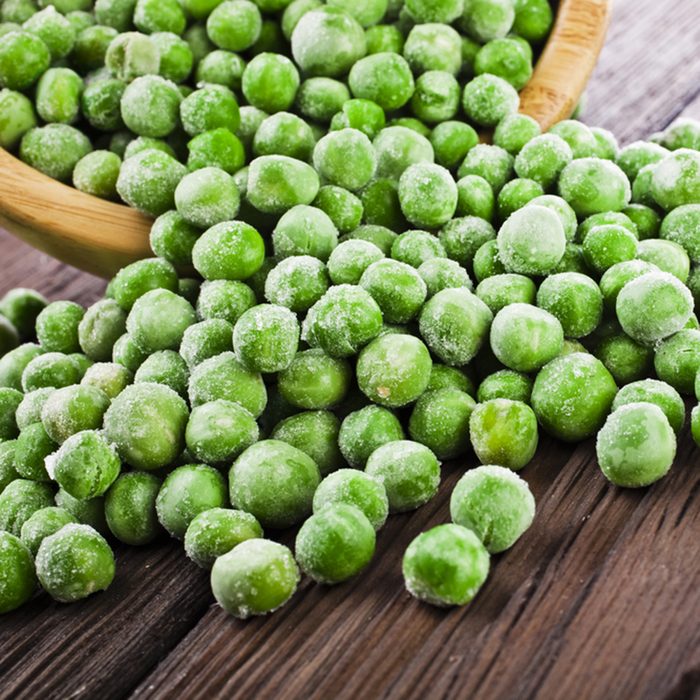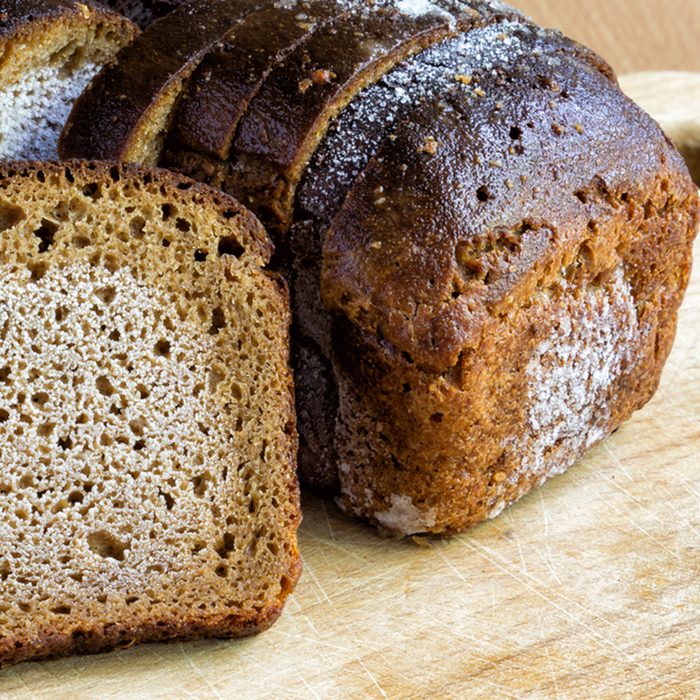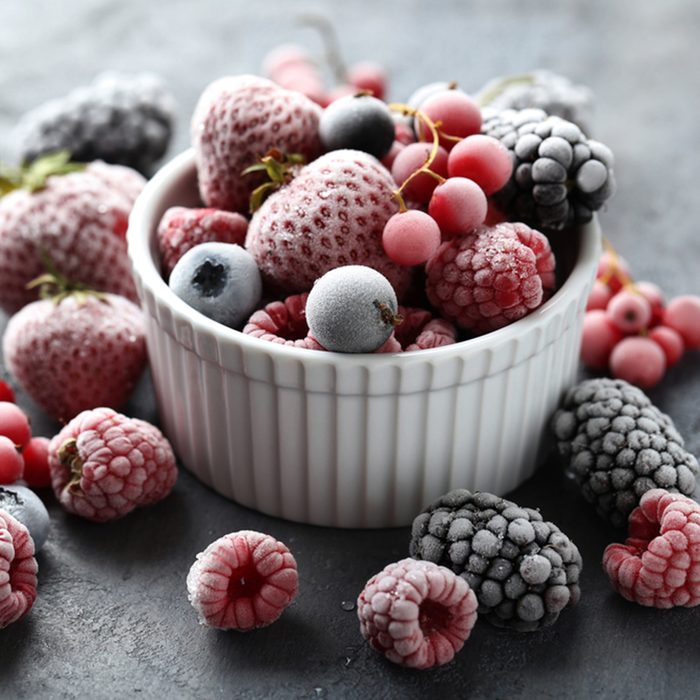
Shelled Peas
Here’s the thing about peas. They taste amazing in the spring, when they’re fresh and filled with nutrients, and not so great anytime after that. You can capture that healthy flavor all year long by cooking with frozen peas. As a bonus, they’re already shelled so they’re easier to cook, too!

Broccoli
You’ll find broccoli in the produce section every season of the year, but that doesn’t mean it’s retaining all its vital nutrients. It starts to lose all those beneficial vitamins and minerals after only a few days in the fridge. Frozen broccoli, on the other hand, retains all those nutrients and is super easy to thaw, too. Use it up quick with these superstar broccoli recipes.

Gluten-Free Bread
You can store any kind of bread in the freezer to extend its shelf life, but it’s especially important to look for frozen gluten-free bread. This type of bread can dry out super quickly, but storing it frozen will help it last longer and taste better. Psst! Here’s how to fix stale bread.

Pound Cake
If you don’t have time to make pound cake from scratch, opt for a frozen loaf instead of buying one from the bakery section of the grocery store. Keeping that buttery dough frozen at all times is the best way to keep it moist and tasting like homemade.

Berries
When berries are in season, you should totally seek them out at the farmers market. (Here’s the best way to freeze fresh fruit!) The rest of the year, opt for frozen berries. They’re picked and packed at the peak of freshness, and they won’t lose their antioxidant-rich properties in the freezer, either.

Spinach
If you’re making a salad, stick to the fresh stuff, but we’d recommend using frozen spinach for any cooked dish. Frozen spinach lasts longer and is typically less expensive than the fresh stuff. Plus, freezing spinach actually makes it more nutritious, increasing its concentration of thiamine and beta-carotene.

Carrots
Sure, carrots are available in the produce section year round, but it turns out that frozen carrots have increased levels of beta carotene, a powerful antioxidant that converts to vitamin A when consumed. So give frozen carrots a try; they’re especially delicious in stir-fry recipes.

Corn
Corn is not only expensive when it’s out-of-season, but it also doesn’t taste that great. Frozen corn, on the other hand, is packed at the peak of the season, so it’ll taste sweet and delicious any time of year.

Bell Peppers
Bell peppers lose their nutrients super fast. In fact, the vitamin C found in peppers starts to oxidize as soon as the peppers are chopped! Freezing the peppers stops the process, preserving the nutrients more efficiently. Plus, you won’t have to worry about de-seeding the peppers if you buy them frozen. Though, here’s how to deseed and prep bell peppers the right way.

Cauliflower
Frozen cauliflower is always available for a fraction of the cost of fresh cauliflower, making the frozen variety a better bargain. You can often find cauliflower rice in the frozen section, too, which means you’ll save yourself a significant amount of prep work.

Seafood
This might seem counterintuitive, because fresh is always better in this department, right? Not always! If you live right by the ocean, your fish is pretty local and will taste great fresh. But, if you don’t live close to the source or you’re buying seafood from overseas like shrimp, frozen will definitely get you better quality.

Frozen Meals
Okay, we’re not suggesting that you stock the freezer with a ton of pre-made frozen meals, but it’s a good idea to have a few healthy options in there for nights when you really don’t feel like cooking. Look for high-quality frozen meals without unpronounceable ingredients. We like the options from Evol, Luvo Bowls or Amy’s Kitchen.
